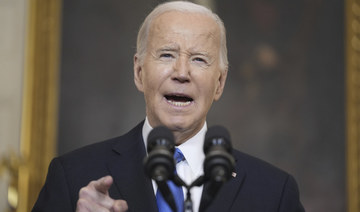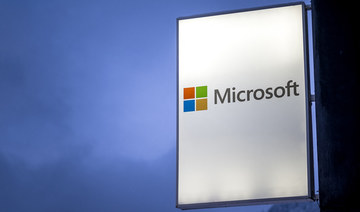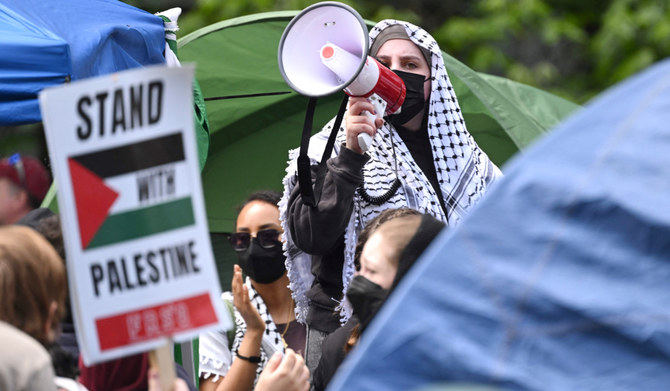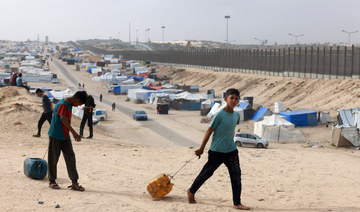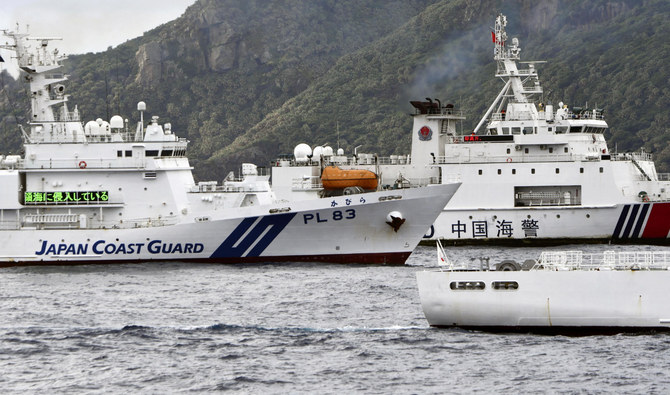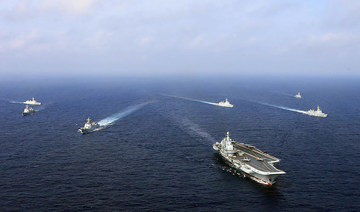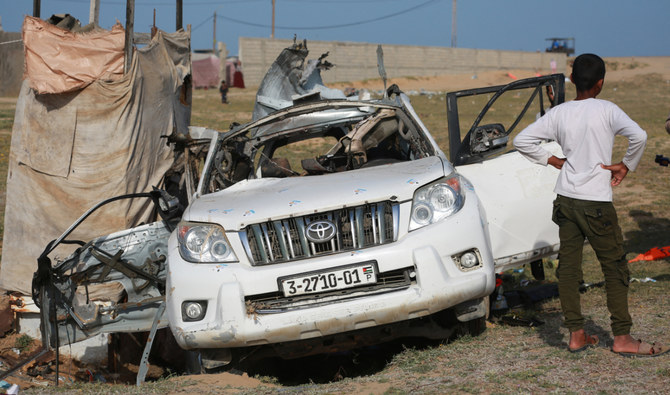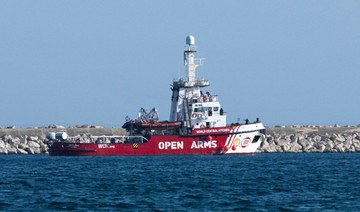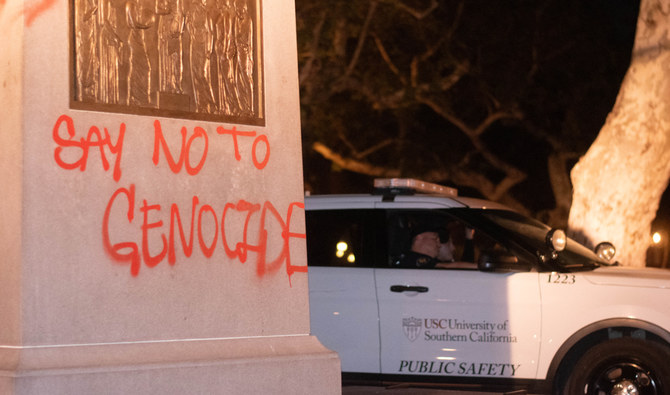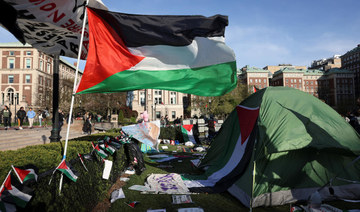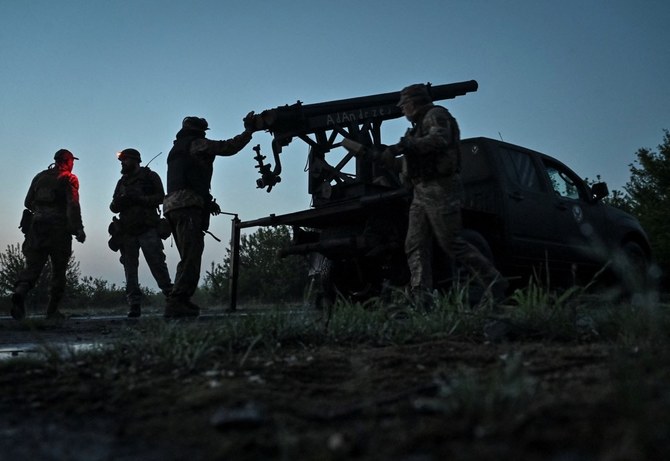WASHINGTON: The US has gathered highly sensitive intelligence about Russian anti-satellite weapons that has been shared in recent weeks with the upper echelons of government, according to four people who have been briefed on the intelligence. The people, who were not authorized to comment publicly, said the capability was not yet operational.
The intelligence sparked an urgent but vague warning Wednesday from the Republican head of the House Intelligence Committee, who urged the Biden administration to declassify information about what he called a serious national security threat.
Rep. Mike Turner gave no details about the nature of the threat, and the Biden administration also declined to address it. But several leading lawmakers, including House Speaker Mike Johnson, cautioned against being overly alarmed.
A congressional aide said he understood that the threat relates to a space-deployed Russian anti-satellite weapon. Such a weapon could pose a major danger to US satellites that transmit billions of bytes of data each hour.
The aide, speaking on condition of anonymity due to the sensitivity of the matter, said it was not yet clear if the Russian weapon has nuclear capability, but said that is the fear.
The threat Turner raised concerns about is not an active capability, according to US officials familiar with the intelligence. One added that intelligence officials consider the threat to be significant, but it should not cause panic.
Turner issued a statement urging the administration to declassify the information so the US and its allies can openly discuss how to respond.
He also sent an email to members of Congress saying his committee had “identified an urgent matter with regard to a destabilizing foreign military capability” that should be known to all congressional policy makers. He encouraged them to come to a SCIF, a secure area, to review the intelligence.
Turner has been a voice for stronger US national security, putting him at odds with some Republican colleagues who favor a more isolationist approach. He has called for the renewal of a key US government surveillance tool while some fellow Republicans and liberal Democrats have raised privacy objections.
And he supports continuing US military aid for Ukraine in its war against Russia at a time that the funding remains uncertain because of opposition in the Republican-led House.
Johnson said he was not at liberty to disclose the classified information. “But we just want to assure everyone steady hands are at the wheel. We’re working on it and there’s no need for alarm,” he told reporters at the Capitol.
Democratic Rep. Jim Himes, the ranking member of the Intelligence Committee, said in a statement that the classified information is “significant” but “not a cause for panic.”
The Senate Intelligence Committee said it has been tracking the issue.
“We continue to take this matter seriously and are discussing an appropriate response with the administration,” Sen. Mark Warner, the Democratic committee chairman, and Sen. Marco Rubio, the Republican vice chairman, said in a statement. “In the meantime, we must be cautious about potentially disclosing sources and methods that may be key to preserving a range of options for US action.”
The rapidly evolving threat in space was one of the primary reasons that the US Space Force was established in 2019. A lot of that threat has to do with new capabilities that China and Russia have already developed that can interfere with critical satellite-based US communications, such as GPS and the ability to quickly detect missile launches.
In recent years the US has seen both China and Russia pursue new ways to jam satellites, intercept their feeds, blind them, shoot them down and even potentially grab them with a robotic arm to pull them out of their programmed orbits. One of the key missions of the Space Force is to train troops skilled in detecting and defending against those threats.
In its 2020 Defense Space Strategy, the Pentagon said China and Russia presented the greatest strategic threat in space due to their aggressive development of counterspace abilities, and their military doctrine calling for extending conflict to space.
The White House and lawmakers expressed frustration at how Turner raised his concerns. His announcement appeared to catch the Biden administration off-guard.
National security adviser Jake Sullivan told reporters at the White House that he already had been due to brief Turner and other senior congressional leaders on Thursday. Sullivan did not disclose the topic or provide any other details related to Turner’s statement.
“I’m focused on going to see him, sit with him as well as the other House members of the Gang of Eight, tomorrow,” Sullivan said. “And I’m not in a position to say anything further from this podium at this time.”
He acknowledged it was not standard practice to offer such a briefing.
“I’ll just say that I personally reached out to the Gang of Eight. It is highly unusual, in fact, for the national security adviser to do that,” Sullivan said. He said he had reached out earlier this week.
Johnson said he sent a letter last month to the White House requesting a meeting with the president to discuss “the serious national security issue that is classified.” He said Sullivan’s meeting was in response to his request.
The drama played out with Biden and the Republican-led House at an impasse over a White House request for $60 billion in military aid to help Ukraine’s defense against the Russian invasion entering its third year.
Johnson — who has repeatedly warned he will not address allies’ security until America’s immigration system is shored up — is refusing to bring the Senate-passed bill to the floor for a vote.
“The most urgent national security threat facing the American people right now is the possibility that Congress abandons Ukraine and allows Vladimir Putin’s Russia to win,” said Democratic Minority Leader Hakeem Jeffries.
(With AFP)




